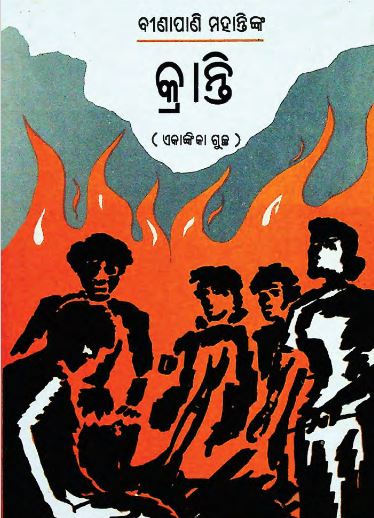Kranti, an Odia drama book by Binapani Mohanty published in 1999, represents a fascinating compilation of one-act plays that capture the spirit of transformation and social introspection. This work, while concise in form, is rich in content and dramatic technique. The title itself, meaning “revolution,” reflects the fervor and dynamism that pervades the plays, inviting audiences to reconsider established norms and engage with themes of change, resilience, and human passion.
The one-act format employed by Mohanty in Kranti is particularly significant. In a format that demands brevity and precision, each play is crafted to encapsulate a complete narrative or idea within a limited timeframe. This form of drama challenges both the playwright and the audience to focus on themes and emotions without the luxury of extended exposition. Mohanty’s work is a testament to the power of succinct storytelling. The plays oscillate between moments of quiet introspection and bursts of energetic dialogue, mirroring the often unpredictable nature of societal revolutions.
In Kranti, the characters are drawn with a keen eye for human frailty and strength. Whether it is a lone figure grappling with inner conflicts or a group engaged in spirited debate about contemporary issues, Mohanty’s characters are multi-dimensional and relatable. They serve not merely as dramatic devices but as embodiments of broader social archetypes. Through their struggles, aspirations, and occasional defiance, the audience is invited to reflect on themes such as justice, freedom, inequality, and the complexities of human relationships.
The language of Kranti is another notable aspect of the work. Mohanty blends the eloquence of classical Odia with a modern sensibility, allowing the dialogues to resonate with both traditional audiences and younger generations. The poetic flare in the dialogues is layered with metaphors that evoke a sense of urgency and passion. This linguistic richness not only beautifies the dramatic expression but also underscores the deeper cultural and philosophical dialogues the plays aim to initiate.
Moreover, Kranti is an exploration of the interplay between the personal and the political. The one-act plays do not shy away from probing into the intricate relationship between individual aspirations and the collective challenges faced by society. This dual focus is what makes the collection enduring and relevant. Every play acts as a microcosm of broader social phenomena—a rebellion against the status quo, a lament for lost ideals, or an allegory of hope and renewal. The use of a one-act structure heightens this effect, as the intensified format forces the narrative to deliver its social commentary without delay or dilution.
Kranti by Binapani Mohanty stands as a significant contribution to modern Odia drama. It is a work of art that challenges audiences to reconsider their perceptions of society and identity. Through its powerful blend of concise narrative form, imaginative character creation, rich linguistic expression, and profound thematic exploration, Kranti not only marks a milestone in the evolution of Odia theater but also serves as an inspiring call for change and self-reflection. This book continues to stimulate dialogue among theater enthusiasts, students, and cultural critics alike, and it remains a potent reminder of the revolutionary potential of art.
Books Info
| Books name | Kranti |
| Author | Binapani Mohanty |
| No Of pages | 35 |
| Publisher | Paschima Publications |
| Publication | 1999 |
| Printed At | Dufduly Process & Offset |
| Distributor | NA |

